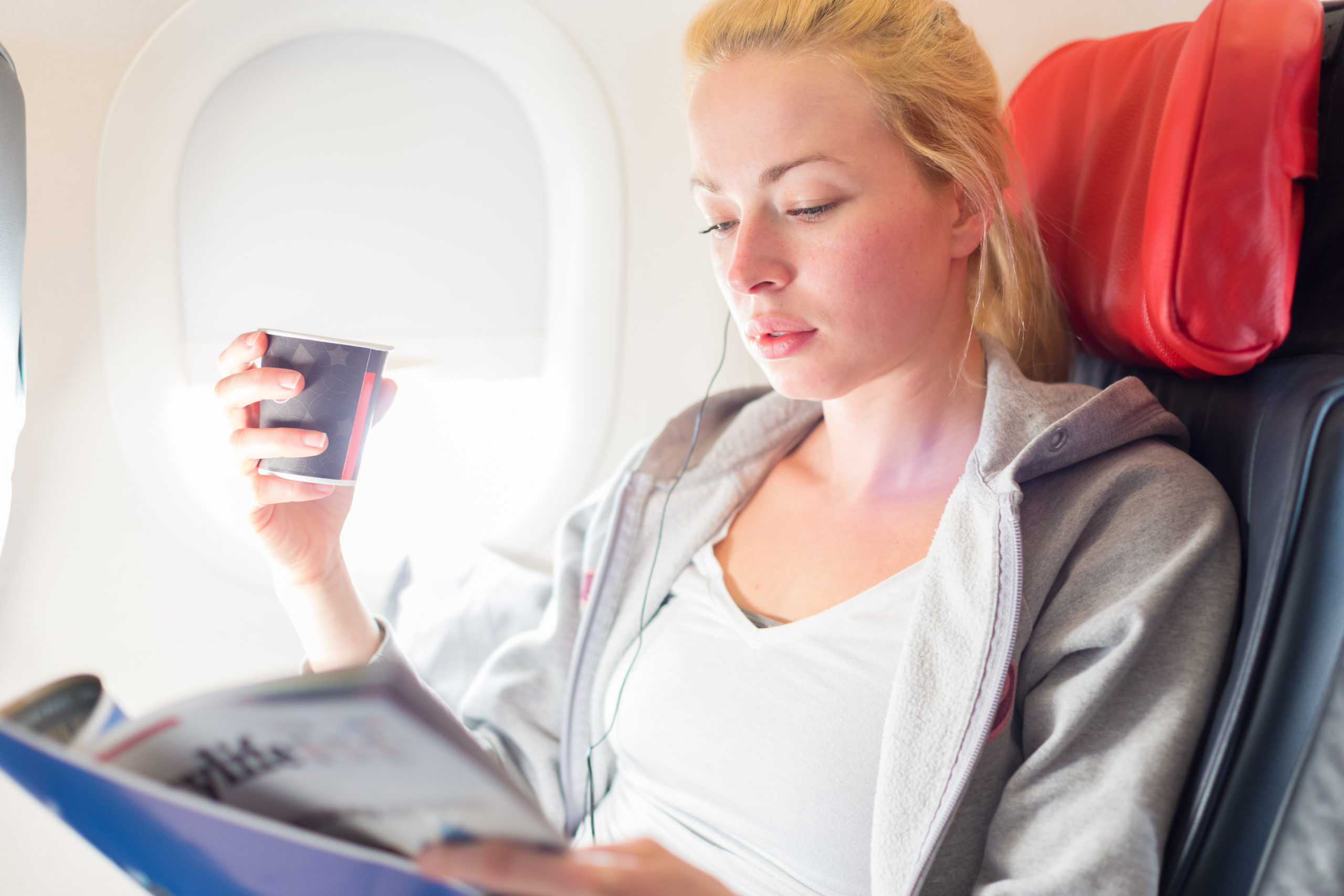Think you know all the rules on board an aircraft? Think again. Beyond the obvious prohibitions like smoking or using your mobile phone, certain practices could land you with a hefty fine, or worse. Here are three lesser-known restrictions that could turn your next flight into a legal nightmare.
Opening your miniature whisky bottle bought at duty-free
The rule that devastates gin and tonic enthusiasts
You’ve purchased a miniature vodka bottle at duty-free, convinced you can jazz up your orange juice during the flight? Bad idea. The regulation is crystal clear: passengers are prohibited from consuming alcohol on board an aircraft unless it’s served by the cabin crew.
This rule applies even if you’ve legally passed security with your 100ml maximum bottles in your transparent plastic bag. You can transport them, but you cannot open or consume them.
Penalties that will make your head spin
Airlines don’t mess about with this rule. A JetBlue passenger on a December 2020 flight between New York and the Dominican Republic was slapped with a $14,500 fine for drinking his own alcohol and refusing to wear a mask.
Some airlines simply confiscate the bottle, but others may ban you from flying with them in future.
The reasoning behind this prohibition
Cabin crew must be able to monitor passengers’ alcohol consumption to prevent dangerous intoxication at altitude, where alcohol affects the body differently due to cabin pressure and reduced oxygen. At 10,000 metres altitude, a drink that barely affects you at sea level could leave you significantly intoxicated.
Taking your favourite camembert into the cabin
The cheese that passes (or doesn’t) security
Attention cheese lovers: your runny brie could end up in the security bin. Creamy cheeses can only pass airport security in individual quantities of 100ml or less. Examples include brie, camembert, cream cheese, cottage cheese, ricotta, and spreadable cheeses.
The TSA considers these cheeses as liquids, just like your shampoo. If it can be spread, poured, or spilled, and doesn’t fit in a 100ml container inside a one-litre transparent bag, it’s not permitted in the cabin.
Cheeses that have travel privileges
Good news for lovers of aged cheddar or gruyère: Hard cheeses can be transported in the cabin in any quantity that fits in your permitted hand luggage. Cheddar, parmesan, gouda, emmental… all these hard cheeses pass through without issue.
The clever traveller’s trick? Buy your camembert after security, in the airport shops (good luck finding it amongst the luxury perfumes and cigarette cartons). Or better still: pack it in your checked luggage where liquid restrictions don’t apply.
The international exception that complicates everything
Careful if you’re travelling internationally: even if you manage to get through security with your cheese, the customs authorities at your destination might have something to say about it. Contrary to popular belief, US Customs and Border Protection allows entry of many cheeses, including brie, camembert, and mozzarella, but other countries may be stricter.
Changing seats without permission (even if the plane is half empty)
Musical chairs forbidden at 10,000 metres
The plane takes off half empty and you’re eyeing that completely free row where you could lie down? Hold on. Even on large aircraft, one person changing position can put the centre of gravity at takeoff outside legal and/or safe limits.
Airlines calculate weight distribution precisely before each flight. To calculate the centre of gravity, passengers must remain in a particular location so cabin crew can report passenger locations to the flight crew, who then calculate the takeoff centre of gravity.
Consequences that can tip the balance… literally
If too many passengers are determined to sit in the same spot, say at the front of the aircraft, they may be asked to move towards the centre, or some might be sent to the rear for balance.
In extreme cases, poor weight distribution can make the aircraft difficult to control. In flight, unbalanced weight at the front could make it difficult to keep the nose up. If weight is overloaded at the rear, the pilot might struggle to recover from a stall.
When airlines play musical chairs
You might even be the one who gets moved! Ryanair, almost unique among 737-800 operators, has their aircraft delivered with integrated fold-down stairs at the front entrance. This increases the front weight compared to “standard” 737s or A320s, so there’s more need to provide passenger ballast at the rear.
Once at cruising altitude, rules generally relax and you can return to your original seat or change seats, depending on the airline’s policy.
Bonus: Two prohibitions that deserve special mention
Giving peanuts to your allergic neighbour
On some American carriers, offering peanuts to your neighbour could land you in trouble. When informed that a passenger has a peanut allergy, several airlines like Delta refrain from serving peanuts and peanut products on board, and ask passengers to avoid consuming them.
Severe peanut allergies can be fatal, and the slightest trace of peanut can instantly become a life-threatening medical emergency. At altitude, the time needed for an emergency landing may be too long to save a life.
Wearing headphones during safety demonstrations
Technically, Bluetooth headphones are permitted in flight. But wearing headphones or earplugs reduces your awareness of environmental conditions and diminishes your ability to hear announcements from cabin crew or pilots.
Using wireless headphones during safety briefings can prevent passengers from hearing essential safety announcements. Some airlines require their removal during takeoff and landing, the most critical moments of flight.
These rules may seem restrictive, but they exist to ensure all passengers’ safety. Next time you board, you’ll know exactly what not to do… and you can watch with amusement as other passengers discover these prohibitions the hard way!

